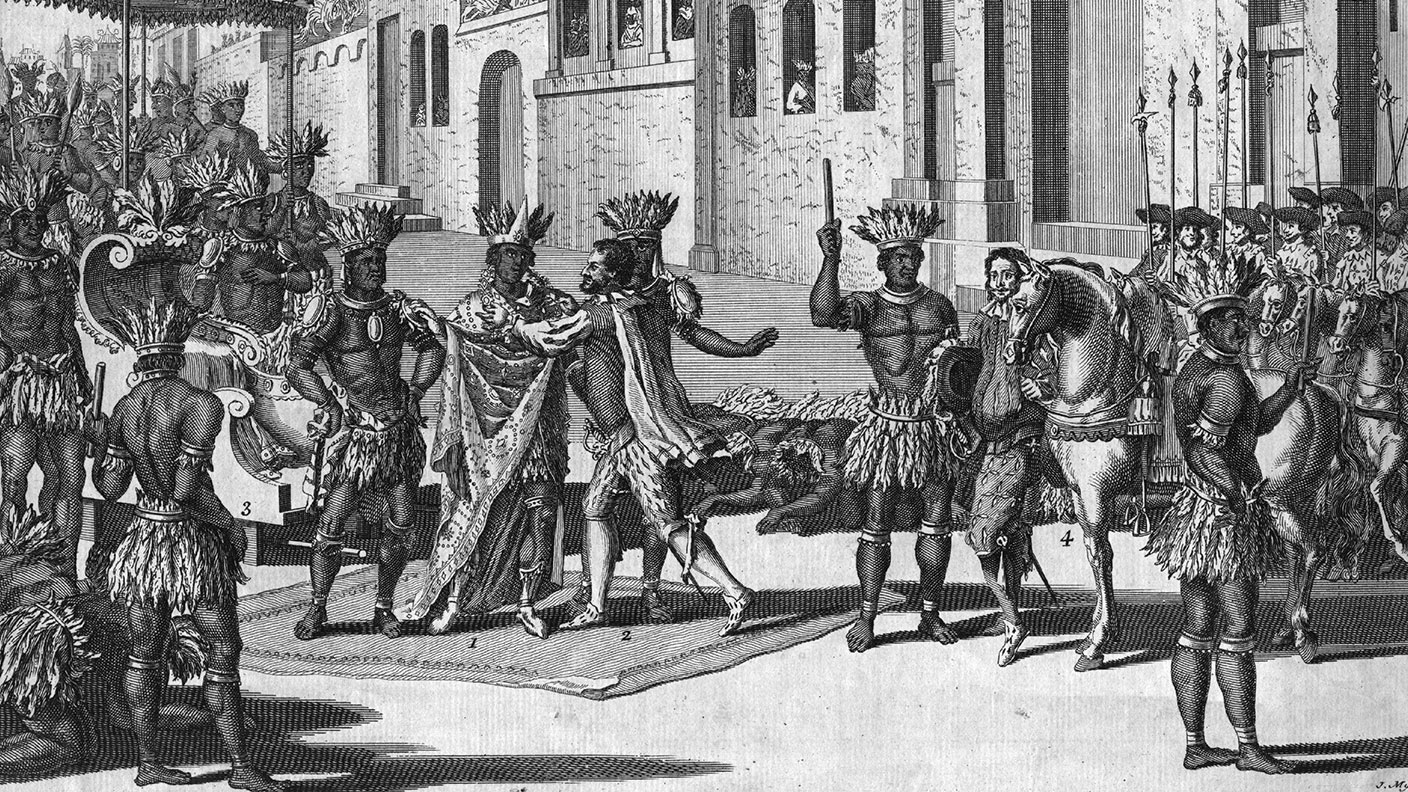
Get the latest financial news, insights and expert analysis from our award-winning MoneyWeek team, to help you understand what really matters when it comes to your finances.
You are now subscribed
Your newsletter sign-up was successful
Want to add more newsletters?

Twice daily
MoneyWeek
Get the latest financial news, insights and expert analysis from our award-winning MoneyWeek team, to help you understand what really matters when it comes to your finances.

Four times a week
Look After My Bills
Sign up to our free money-saving newsletter, filled with the latest news and expert advice to help you find the best tips and deals for managing your bills. Start saving today!
The Aztec Empire, begun around 1345, was formed from three great city states – the Triple Alliance - with the city of Tenochtitlán the capital. The Alliance was very keen on war, and conquered many of the other city states in the Valley of Mexico. At its largest extent, the empire covered some 11,000,000 people. And it amassed huge wealth.
Unfortunately for the Aztecs, the Spanish had recently arrived in the Caribbean, and they were hungry for gold. Once the Spanish got wind of their treasures, the Aztecs' days were numbered.
Hernán Cortés was put in charge of an expedition to Mexico in 1519. He soon met a messenger from Montezuma, the Aztec ruler, and gave him a display of the Spaniards' might, with cavalry charges, guns and cannon blasts. The Aztecs were suitably intimidated.
MoneyWeek
Subscribe to MoneyWeek today and get your first six magazine issues absolutely FREE

Sign up to Money Morning
Don't miss the latest investment and personal finances news, market analysis, plus money-saving tips with our free twice-daily newsletter
Don't miss the latest investment and personal finances news, market analysis, plus money-saving tips with our free twice-daily newsletter
Cortés moved on, subjugating cities here and there, until he got to Tenochtitlán. The inhabitants venerated the Spaniards as gods, showered them with riches and put them up in sumptuous lodgings. But the Spanish were very ungrateful guests. And, despite being hugely outnumbered, Cortés arrested Montezuma and demanded he submit to the King of Spain.
The Aztecs staged a rebellion in 1520, in which Montezuma was killed. But they succeeded in driving the Spanish out of Tenochtitlán. The Spaniards may have fled, but they left the Aztecs a most unwelcome gift – smallpox, and the city's population was ravaged. And it wasn't long before the Spanish were back. Cortés returned with a bigger force of soldiers and laid siege to the city for four months.
On 13 August, Cortés captured Cuauhtémoc, the Aztecs' new leader, and Tenochtitlán fell, effectively ending the Aztec Empire. The city was looted, and Cuauhtémoc was tortured to find the location of the rest of the gold. Eventually, Cortés had Cuauhtémoc killed, after he suspected him of plotting to kill him.
Get the latest financial news, insights and expert analysis from our award-winning MoneyWeek team, to help you understand what really matters when it comes to your finances.

-
 Should you buy an active ETF?
Should you buy an active ETF?ETFs are often mischaracterised as passive products, but they can be a convenient way to add active management to your portfolio
-
 Power up your pension before 5 April – easy ways to save before the tax year end
Power up your pension before 5 April – easy ways to save before the tax year endWith the end of the tax year looming, pension savers currently have a window to review and maximise what’s going into their retirement funds – we look at how
-
 31 August 1957: the Federation of Malaya declares independence from the UK
31 August 1957: the Federation of Malaya declares independence from the UKFeatures On this day in 1957, after ten years of preparation, the Federation of Malaya became an independent nation.
-
 13 April 1960: the first satellite navigation system is launched
13 April 1960: the first satellite navigation system is launchedFeatures On this day in 1960, Nasa sent the Transit 1B satellite into orbit to provide positioning for the US Navy’s fleet of Polaris ballistic missile submarines.
-
 9 April 1838: National Gallery opens in Trafalgar Square
9 April 1838: National Gallery opens in Trafalgar SquareFeatures On this day in 1838, William Wilkins’ new National Gallery building in Trafalgar Square opened to the public.
-
3 March 1962: British Antarctic Territory is created
Features On this day in 1962, Britain formed the British Antarctic Territory administered from the Falkland Islands.
-
10 March 2000: the dotcom bubble peaks
Features Tech mania fanned by the dawning of the internet age inflated the dotcom bubble to maximum extent, on this day in 2000.
-
9 March 1776: Adam Smith publishes 'The Wealth of Nations'
Features On this day in 1776, Adam Smith, the “father of modern economics”, published his hugely influential book The Wealth of Nations.
-
 8 March 1817: the New York Stock Exchange is formed
8 March 1817: the New York Stock Exchange is formedFeatures On this day in 1817, a group of brokers moved out of a New York coffee house to form what would become the biggest stock exchange in the world.
-
7 March 1969: Queen Elizabeth II officially opens the Victoria Line
Features On this day in 1969, Queen Elizabeth II took only her second trip on the tube to officially open the underground’s newest line – the Victoria Line.
